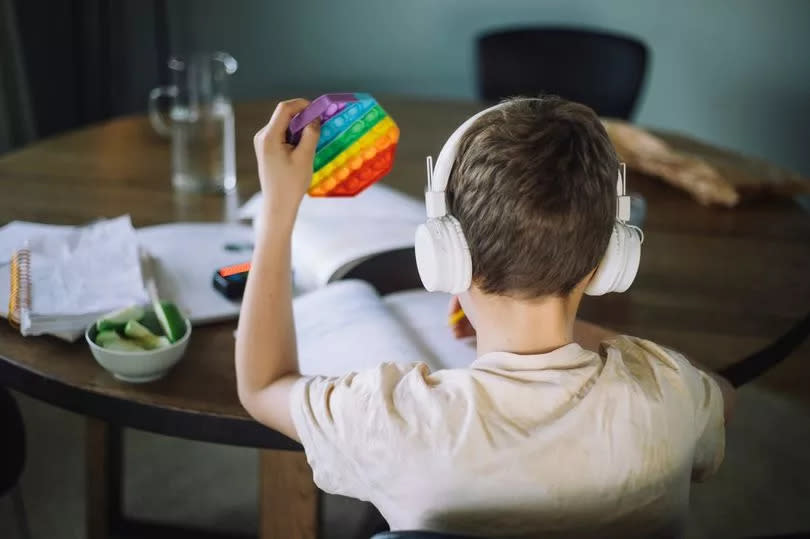Early red flag signs of autism in children and age they begin appearing

Experts have shared some red flag signs of autism that can show up in people at an early age - sometimes as young as 12 months old.
Autism spectrum disorder (ASD) is a condition that affects a person's brain and changes the way they handle social situations as well as causing restrictive or repeating behaviours. Symptoms of this condition can show up in extremely young children, even as early as their first or second birthday, reports the Mirror.
Common early signs of ASD include struggling to respond to their own name, a lack of eye contact, problems with nonverbal communication, issues with following someone's gaze or direction towards an object and problems with imaginary play.
While autism is typically diagnosed in children aged three years old or over, doctors can sometimes spot a developmental issue earlier on. Identifying these signs as early as possible can lead to better handling of the outcome.
Those with ASD may show physical signs or interests in things that may seem unusual to someone who doesn't have ASD.
Signs of autism in children
The Centre for Disease Control and Prevention has provided some red flag symptoms of ASD to be on the lookout for in young children.
These include:
Lining up toys or other objects to their liking and becoming agitated or upset when this order is interrupted or changed
Repeating words or phrases over and over - known as echolalia
Focusing on specific parts of objects - such as the wheels of a toy car
Playing with their toys in the same way every time
The beginnings of an obsessive interest in something
Becomes upset at minor changes in everyday life
Must follow a specific routine
Spins in circles, flaps hands or rocks body
Unusual reactions to sounds, smells, tastes, sights and textures

By one year old, HealthyChildren.org has stated that most children are able to immediately look in the direction of an object that someone is pointing at. This child will then look back at the person and mimic their expression - typically a smile.
However, those who may be on the autism spectrum could ignore the person altogether which can cause concern for parents surrounding their child's hearing.
By just nine months of age, most babies will display many facial expressions - including anger, happiness, sadness or surprise. They should also be able to engage in simple games with their parents like pat-a-cake and peek-a-boo.
By 15 months old, most toddlers should be able to point to toys or other objects they want that may be out of reach to them. However, a child on the autism spectrum may instead guide their parent's hand to the toy they want without a significant amount of eye contact.
By 18 months, most kids will point at objects that interest them and can look back and forth between the object and the parent to make sure the parent is also engaged in what they are doing.
Children on the autism spectrum at this age may point to an object because they want someone to bring it to them - not necessarily because they want to engage with the person.
As kids approach their second birthday, they may mimic other children and enjoy observing others play. Those on the autism spectrum may not react or mimic when others or hurt or upset by this age.
These children may notice other children and join in other forms of play by 36 months of age. Those on the autism spectrum may not engage in pretend play - such as pretending to be a superhero or other fictional character - by 48 months of age. By 60 months of age, they may not sing, dance or perform for their parents.
It is important to remember that autism is a spectrum and everyone who has the condition has symptoms and experiences that are unique to them.
Autism affects every individual differently with some people requiring daily assistance from a caregiver or parent - and others needing little to no support at all.
Signs of autism spectrum disorder (ASD) can be detected at a young age - or it may not become apparent to others or the individual themselves until later in life.
Don't miss the latest news from around Scotland and beyond. Sign up to our daily newsletter.

 Yahoo News
Yahoo News 
